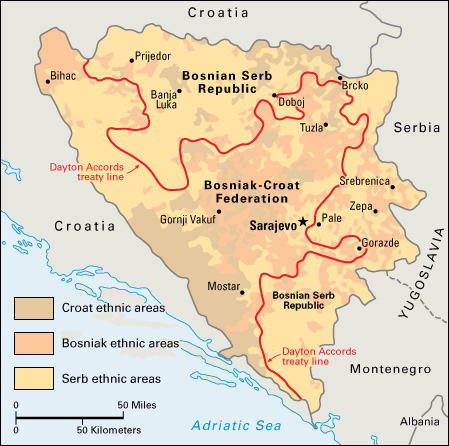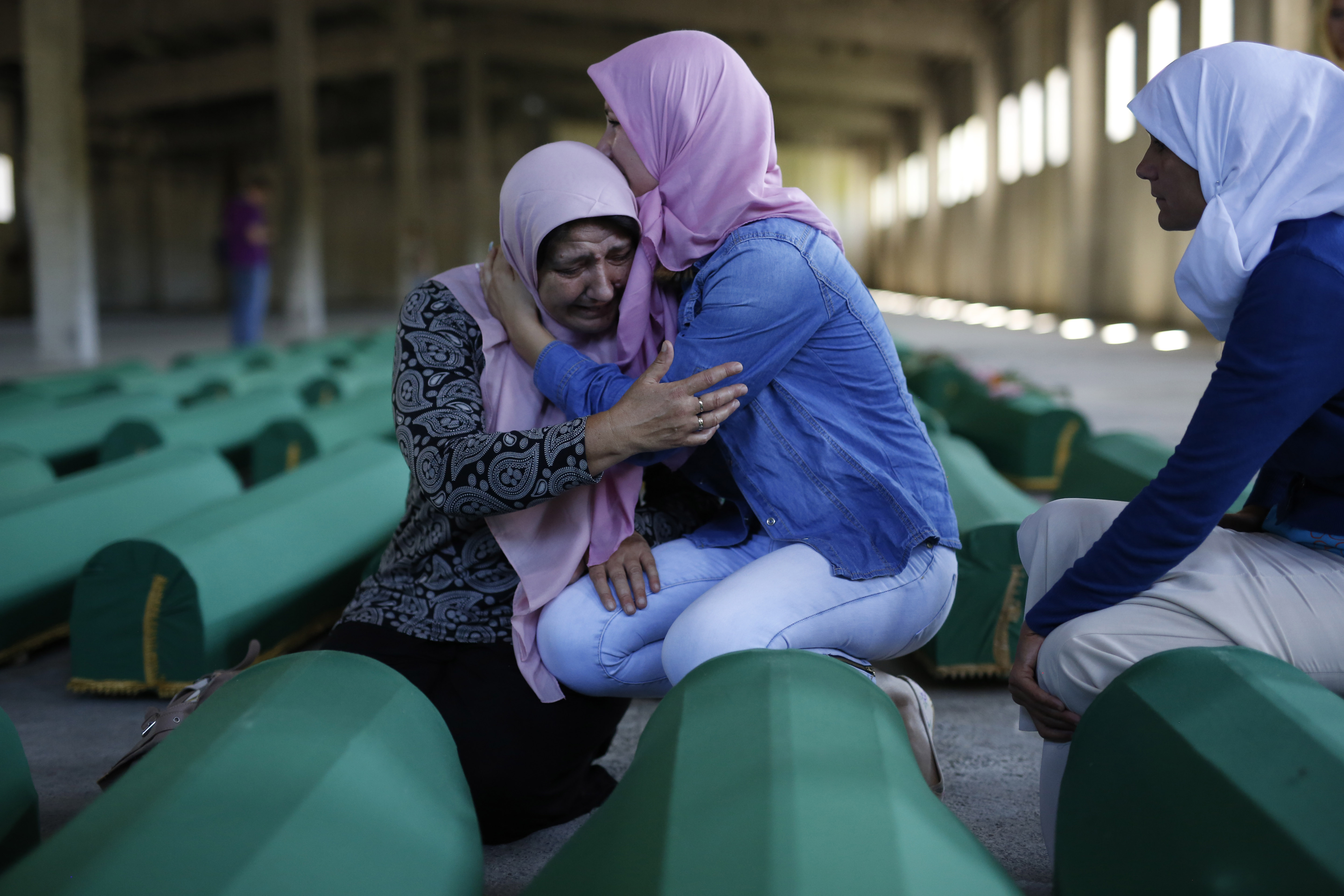Bosnian War (1992-1995) was a conflict between ethnic groups mainly in Bosnia-Herzegovina. Through most of the 1900’s, Bosnia-Herzegovina (often simply called Bosnia) had been part of Yugoslavia. Yugoslavia began to break into smaller countries in the early 1990’s, and Bosnia became independent in March 1992. Following independence, Bosnian, Croatian, and Serbian forces fought for control of the new country. The war ended in December 1995 with an agreement for the groups to share power.
Background.
Bosnia had long been a site of conflict because of the cultural and religious differences between its ethnic groups. In the late 1980’s, relations between the groups worsened. Tensions grew especially between Serbs and two major non-Serbian groups, Bosniaks (sometimes called Bosnian Muslims) and ethnic Croats. 
In early 1992, a majority of Bosniaks and Croats in Bosnia voted for independence from Yugoslavia. Serbs in Bosnia opposed independence and refused to take part in the vote. In March 1992, Bosnia declared independence. Serbs in Bosnia rebelled against the separation, and a civil war began.
The war.
Serb military units began killing or forcing out all non-Serbs from the territory they controlled. The campaign to eliminate or remove ethnic groups is sometimes called ethnic cleansing. Croatian troops stepped in, but the Serbs drove them back with help from the Yugoslav army. Most of Bosnia quickly fell to Serb forces. The United Nations (UN) imposed an oil and trade embargo (restriction) against Yugoslavia in an attempt to end the war.
In mid-1992, reports indicated that Bosnian Serbs had tortured and killed Bosniak and Croatian civilians in detention camps. Thousands of people, mostly civilians, also died from attacks on the Bosnian capital, Sarajevo. In October, the UN established a war crimes commission to investigate reported human rights abuses and violations of the rules of warfare.
Also in October 1992, fighting broke out between Croats and Bosniaks. The violence increased in 1993. In February 1994, the two sides signed a cease-fire agreement. In March, they agreed to form a joint federation. The Bosnian Serbs continued fighting, however. The Serbs refused to consider an international peace plan that was proposed in mid-1994. In July 1995, Serb forces captured the Bosnian town of Srebrenica. They massacred thousands of Bosniaks who had taken refuge there. See Srebrenica Massacre.
In the second half of 1995, Croatian troops launched a successful offensive against Serb forces in western Bosnia. The North Atlantic Treaty Organization (NATO) supported the offensive with air strikes and artillery fire. The combined military actions forced the Serbs to accept a peace plan known as the Dayton Accords. Signed in December 1995, the plan called for dividing Bosnia into two parts—one part under the control of a Bosniak-Croat federation and the other part ruled by Bosnian Serbs. The agreement ended the war.
Aftermath.
About 100,000 people died in the Bosnian War, making it the deadliest European conflict since World War II (1939-1945). The war left Bosnia’s central government weak and highly dependent on international support. Bosnia’s ethnic groups remained divided, and some hostilities continued. Many refugees were unable to return to their homes or afraid to do so.

An international court established by the UN convicted a number of people from the warring ethnic groups of war crimes. However, other war criminals remained unpunished.
See also Bosnia-Herzegovina (History).
